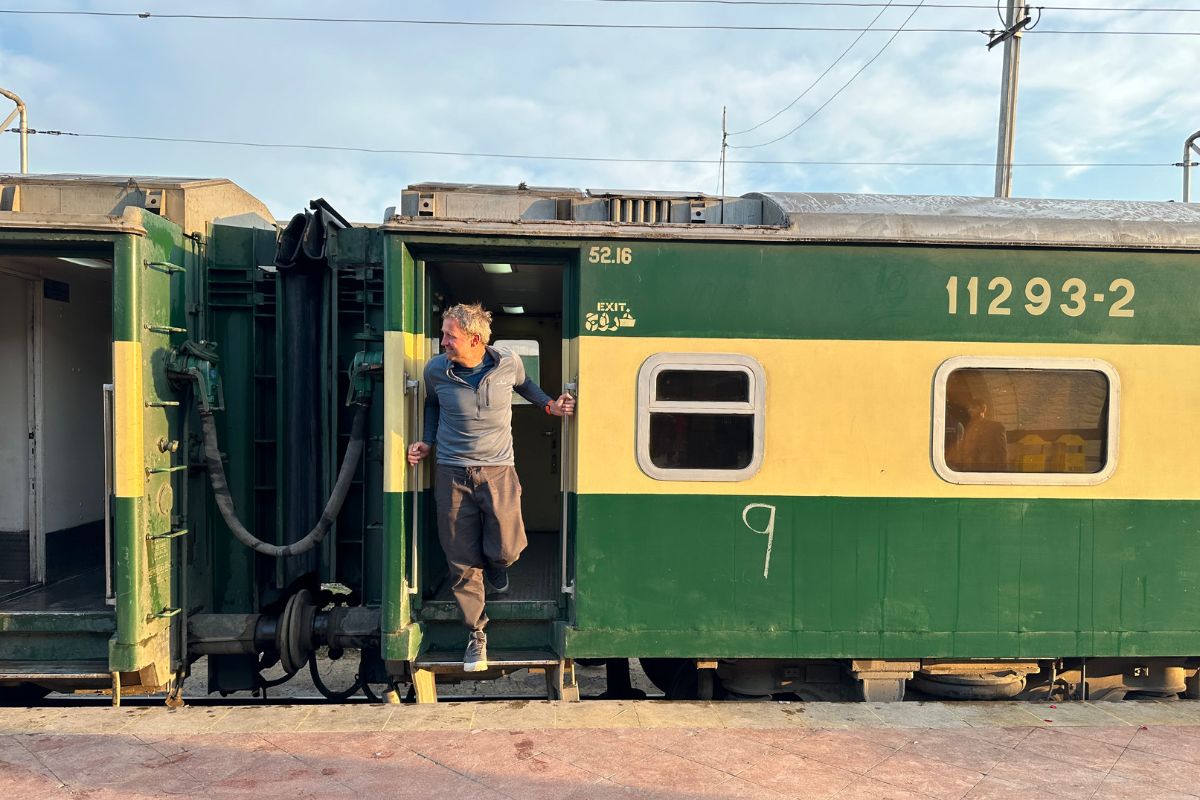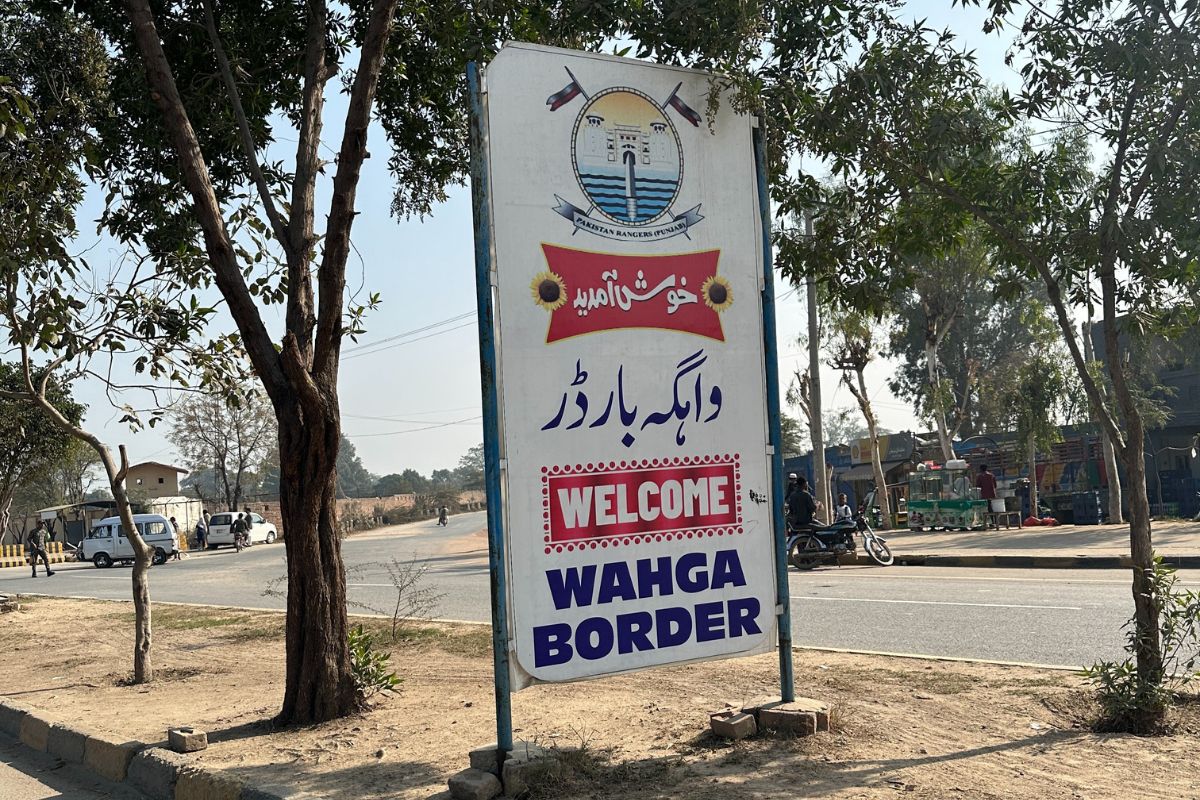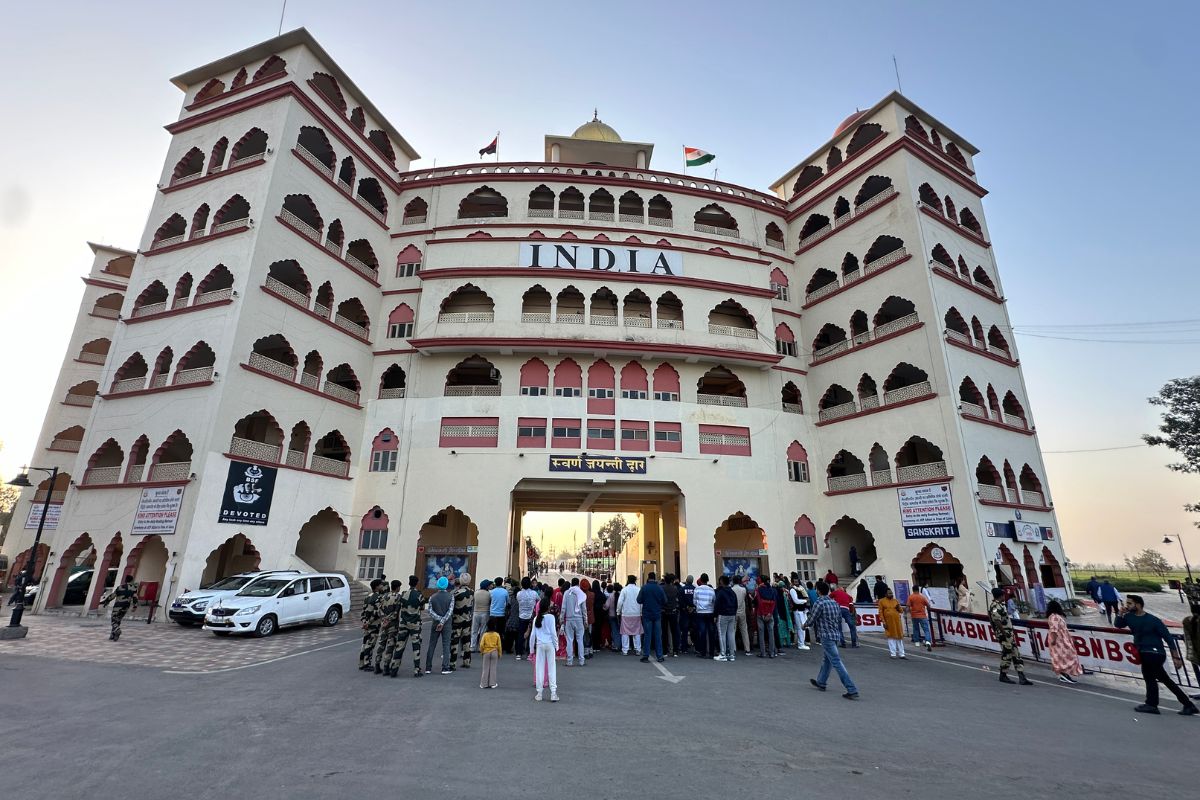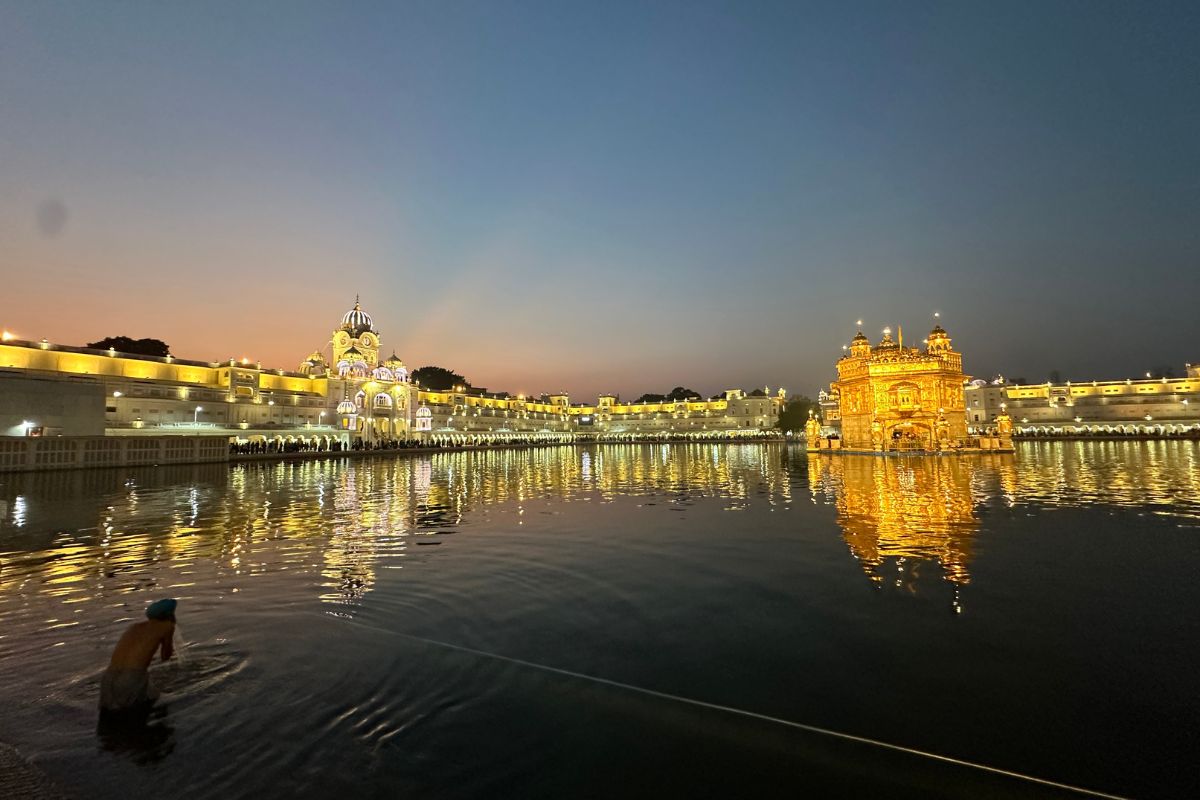
I’ve blubbed a few times on this trip, it’s been emotional. Mostly happy tears, like witnessing an otherworldly sunrise from the dining carriage en route to Isfahan, some sad.
Yesterday’s were undoubtedly the latter variety.
I hadn’t really given much thought to the crossing from Pakistan into India beyond it being my final border of the trip and the mixed emotions that come with that (I don’t want this to end//I want to go home and be with loved ones).
But as I waited for my train at Attari Station close to the Wagah Border, it belatedly struck me that I must be right at the point where so much tragedy occurred during the days and weeks following Partition.
This section of train line that sits between Lahore and Amritsar was where so many inter-religious atrocities were carried out, one act of retaliation after another until likely any justification became secondary. People were scared, desperate and confused. Misinformation was rife. The world, their lives as they knew them, had literally been pulled away from under their feet by the fast departing British. To say that the British leaders of the day let millions of people down would be a gross, gross understatement.

Anyone visiting the Wagah border travels by bus. There’s plenty of them especially for the daily border ceremony (which given the clear acts of animosity between these two countries today, it seems grossly misplaced to me, more a show of might from the Indian side).
But I’m more of a train kind of guy (!) so I took a ride to the nearby station and sat with my thoughts and waited three hours in the dark for the only train of the day. I’m really glad I did, Amritsar could wait.
I’m not going to attempt to surmise what led up to Partition and what then followed, I shouldn’t and couldn’t in any case. Suffice to say it’s complex, harrowing and is still having an impact on millions of people today.
Along with mourning this time in history and the many (so, so many) unsuspecting and undeserving individuals that got caught up in it, I dwelled on something else: I, a European with no ties to either country, was able to cross this border with relative ease whilst almost no citizen from either side can do the same regardless of family connections on the other side.

Maybe it’s not my place, however I struggle to wrap my head around that.
The world is an unfair place, if you’re reading this then it’s extremely likely that – like me – you’re getting a vastly better deal on planet earth than most others. It’s important that we remember that and use the advantage we have to push leaders around the world to behave better. Participate and use our advocacy on behalf of those that don’t have as loud a voice as us…
Keen to learn more about Partition? Here’s a couple of resources I was introduced to along the way:
Mishal Husain’s book Broken Threads provides a superb overview of the decades before Partition, why it came about and how it impacted the people of India and Pakistan. As enjoyable a read as it is informative.
Also beautiful is this short story by one of Pakistan’s most beloved authors – Saadat Hasan Manto.

Finally, for those that make it to Amritsar (and you really should try to sometime. The Golden Temple is spectacular. It, along with the Sikh community, offered the perfect antidote to my deep remorse and sadness at the border). If you do make it, then the excellent and equally harrowing Partition Museum is highly recommended.
Day: 53 / Distance: 11,643km
